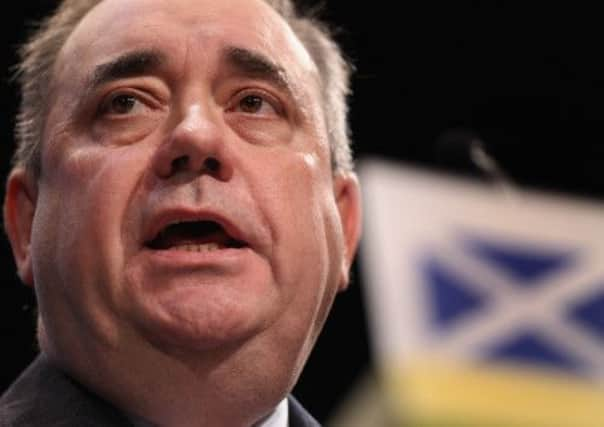Scotland to join UK-wide press regulator


Alex Salmond had previously insisted the issue could not “be left to Westminster” legislation and backed an Irish-style ombudsman in Scotland, after Lord Justice Leveson’s report last year set out plans for a radical overhaul of the way newspapers are policed.
But ministers in Edinburgh have now suggested a series of amendments to the coalition government’s Royal Charter solution on press regulation, which would see it covering Scotland as well. It follows talks with the UK government and opposition parties at Holyrood.
Advertisement
Hide AdLord McCluskey, the former High Court judge who headed an expert group on Leveson in Scotland, dismissed the Royal Charter as a godsend for “dictators” last week and said Scotland had been “totally ignored” when it was drawn up.
The former solicitor general had also called for compulsory regulation of all the country’s main newspapers, going further than Lord Leveson, who backed a voluntary system – which also appears to be the preferred choice of the Scottish Government.
Now culture secretary Fiona Hyslop has insisted a system of “incentives” can be put in place at Holyrood to mirror the proposal for increased damages against newspapers in England and Wales that do not take part in the system. Many publishers have already indicated they will not participate.
Ms Hyslop will appear before MSPs on Holyrood’s culture committee today, but says talks about Scotland’s “participation in a UK-wide Royal Charter” have already been discussed with Westminster officials.
“Our discussions have confirmed that the draft Royal Charter is capable of extension to Scotland with a relatively small number of largely technical amendments,” she says in a letter to MSPs.
The Scottish Government has now put these amendments to UK ministers and also wants to see provisions in the charter to give greater protection to bereaved families following harrowing evidence given to the Leveson Inquiry by James and Margaret Watson. Their 15-year-old son Alan killed himself after reading derogatory articles about his 16-year-old sister, who had been killed 18 months earlier in 1991.
Advertisement
Hide AdMs Hyslop says the proposed charter could be changed to refer to “ensuring appropriate respect in dealing with those who are recently deceased, where the only public interest in them is because of the circumstances of their death and their near relations”.
The Royal Charter will see the newspaper industry set up a self-regulatory body, policed by a “recognition panel” which would oversee its independence and effectiveness. The panel would be underpinned in law, prompting concerns that it is effectively statutory regulation of the press and a threat to freedom of speech.
Advertisement
Hide AdLord McCluskey criticised the Royal Charter suggestion when he appeared before MSPs last week, insisting it was never proposed by Lord Leveson and would be welcomed by “dictators like Mugabe and Putin” because it bypassed any scrutiny by parliament.
David Sinclair, a former journalist who sat on the McCluskey group, said members believed the “best solution” was a UK-wide body.
He said: “There’s always been a question of carrot and stick, but even on that basis a lot of major publishers have said they will not participate.”